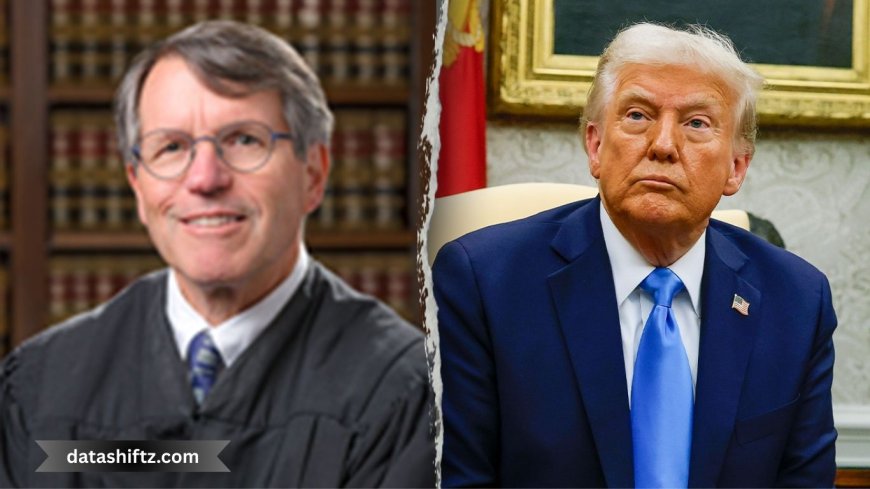Judge William Orrick: Decisive Ruling on Sanctuary City Funding

On August 23, 2025, U.S. District Judge William H. Orrick III delivered a landmark decision that reverberated across the nation. Known for defending local autonomy and constitutional balance, Judge Orrick extended his April injunction to block the Trump administration from withholding federal funds from more than 30 sanctuary cities and counties—including Los Angeles, Chicago, Boston, Baltimore, and others.
Background and Importance of the Ruling
Judge Orrick originally issued a preliminary injunction in April 2025, shielding 16 jurisdictions—mostly in California—from executive orders threatening to cut or condition federal funding based on immigration enforcement cooperation. On Friday, August 22‑23, he extended that protection to a new batch of cities and counties that had joined the lawsuit.
Why it matters:
-
The ruling blocks attempts by the Trump administration to coerce local governments into immigration enforcement by threatening vital financial resources.
-
It underscores constitutional safeguards—including the Spending Clause, Separation of Powers, and the Tenth Amendment—that protect local self-governance.
Quick Summary
| Aspect | Details |
|---|---|
| Judge | William H. Orrick III (Obama-appointed, serving in the Northern District of California) |
| Nature of Injunction | Extended preliminary injunction blocking funding cuts/condition targeting sanctuary jurisdictions |
| Affected Regions | Over 30 cities/counties—including Los Angeles, Chicago, Boston, Baltimore, Denver, Albuquerque |
| Legal Basis | Violations of Spending Clause, constitutional separation of powers, and Fifth/Tenth Amendment rights |
| Administration Status | Trump administration appealing; White House has not commented |
| Significance | Preserves local autonomy; prevents federal coercion of immigration policies |
Key Highlights
-
Expansion of Injunction: Judge Orrick didn't merely reaffirm his April ruling—he expanded it to protect dozens more jurisdictions that filed to join the case.
-
Broad Scope: Major metropolitan areas such as Los Angeles, Chicago, Boston, and Baltimore are now shielded from federal fund withdrawal based on sanctuary policies.
-
Constitutional Grounds:
-
Spending Clause & Separation of Powers: Federal money decisions lie with Congress—not executive fiat.
-
Fifth Amendment: The vagueness and ambiguity in the executive orders fail due‑process standards.
-
Tenth Amendment: Restraining local governments from independent policy-making via funding threats violates decoupled federalism.
-
-
Legal Momentum: This ruling echoes a similar injunction he issued in 2017 during Trump's first term—but the stakes this time appear higher as it affects a broader spectrum of communities.
-
Appeal Underway: The Trump administration is appealing the earlier April injunction, signaling a likely continuation of court battles.
Broader Implications and Reflection
Judge Orrick’s decision arrives at a moment of mounting friction between federal immigration initiatives and local governance values. By extending protections to sanctuary jurisdictions, the ruling reinforces:
-
Local Autonomy: Municipalities can maintain immigration policies they deem appropriate without fearing financial repercussions.
-
Stabilized Services: Many of these cities rely on federal grants for police, public health, infrastructure, and social programs—now assured continuity.
-
Judicial Role: Courts continue to act as vital checks on the executive branch, especially regarding constitutionally contentious issues.
Critics, however, argue that the federal government should retain flexibility to incentivize local compliance with national immigration objectives. Supporters of the injunction counter that wielding funding as leverage undercuts democratic governance and chilling community relations built on trust.
Conclusion
Judge William Orrick’s most recent ruling on August 23, 2025, marks a critical moment in the ongoing legal and political battle over sanctuary cities in the United States. By expanding his injunction to protect over 30 additional jurisdictions from federal funding threats, Orrick reinforced a core principle of American democracy: the autonomy of local governments within a constitutional framework.
His decision sends a clear message that executive overreach—particularly when it undermines congressional authority and local sovereignty—will not go unchecked. Orrick's ruling upholds the Spending Clause, reaffirms the Tenth Amendment, and protects due process under the Fifth Amendment, setting a strong legal precedent for future conflicts between federal mandates and local governance.





























